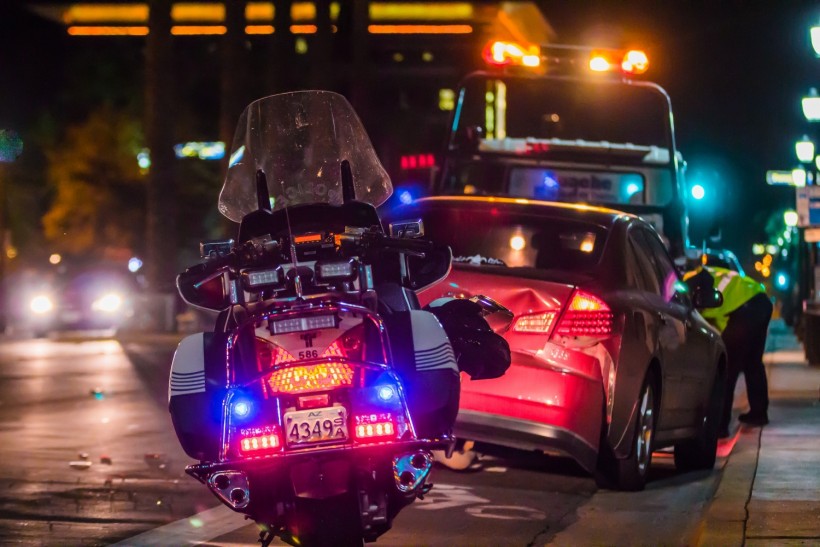As a road user, there's always a risk of being involved in an accident. While the most common causes of accidents are due to speeding, driving under the influence, inattentiveness, disregarding traffic signals, and so on, accidents can still happen even to the most careful road users.
People's reactions after an accident will differ. Some may be in shock, while others may feel anger, fear, or anxiety. But it's important to stay as calm as possible. An experienced NYC auto accident lawyer has come up with some essential steps every car accident victim should take.
Some people may find it difficult to take action after an accident due to shock or trauma. But it is important to try to follow the steps to put yourself in a good position should any lawsuit arise after the accident.
1. Pull Over And Check For Injuries
The first thing to do after an accident is to pull over, even if your vehicle isn't seriously damaged or the accident isn't your fault. It's a serious offense to flee from an accident you are involved in, regardless of who is at fault.
Unless your vehicle is too damaged, you should move it to a sidewalk or nearby safe space. The reason is to avoid traffic obstruction and make the road passable for other road users. With your car out of the way, the next thing to do is to examine yourself for injuries and have a paramedic or other first responders at the scene take a look at you. If paramedics do not come to the scene, visit a doctor later for a checkup.
The police may also not come to the scene if no one is injured and the road isn't blocked. In such situations, you should still report the accident to the nearest police station and get a copy of the police report.
2. Collect Important Information
Collect as much information as you can at the scene of the accident. Key information to collect includes the other driver's name, contact information, and insurance details.
Take pictures of damages to your vehicle and that of the other driver. Pictures, they say, are worth more than a thousand words. Video and picture evidence is important to avoid the other party making bogus claims after an accident.
3. Don't Make Deals Or Fight The Other Party If They Are Not Cooperating
Sometimes, the other person involved may offer you a significant sum of money as compensation at the scene of the accident. But accepting the money may expose you to more liabilities down the line. So, don't make deals even if the other party's at fault.
It's worth mentioning that the other party may not cooperate with you. In such situations, don't pick a fight with them. All you need is just a picture of their car showing their license plate. Let the police handle the matter if they are at the scene. However, if the police are prioritizing other emergencies, visit the nearest police station to report the accident and get a copy of the police report.
If the other driver flees from the scene, you may need eyewitnesses or surveillance cameras in the area to identify them. Usually, all you need is just to get their license plates.
4. Take Care Of Your Personal Belongings And Call The Insurance Company
If the damage to your vehicle is minimal and you aren't seriously injured, you may still be able to drive home or to the nearest hospital for a checkup. But if your vehicle can't be moved or you are in no position to drive, remove any valuable items in your car.
Call your insurance company as soon as you can after an accident and provide all the important information. Leave nothing out, and don't lie. You'll be doing yourself more harm than good if you lie to your insurance provider.
If you don't know how to file a claim, visit your insurance provider's website or mobile. Most insurance companies provide a step-by-step guide to filing a claim on their website. Some providers may also allow customers to make virtual claims which became very popular at the height of the COVID-19 pandemic.
5. Consider Consulting A Lawyer
If you have a lawyer you can speak with at the scene of the accident, call them for advice and tips you may forget or not even think of in the tense and emotional aftermath of an accident. You may also need specialized attorneys depending on the circumstance of the accident. For instance, if you are driving while intoxicated or impaired.
6. Follow Up With Your Doctor
If you are still feeling unwell after an accident, follow up with your doctor. Be sure to keep any appointment you have with your doctor. The reason for this is to speed up your recovery and have proof of treatment that may come in handy when making a claim.
* This is a contributed article and this content does not necessarily represent the views of sciencetimes.com














!['Cosmic Glitch' in Einstein's Theory of General Relativity Could Be Explained in This New Scientific Tweak [Study]](https://1721181113.rsc.cdn77.org/data/thumbs/full/53435/258/146/50/40/cosmic-glitch-in-einsteins-theory-of-general-relativity-could-be-explained-in-this-new-scientific-tweak-study.jpeg)
